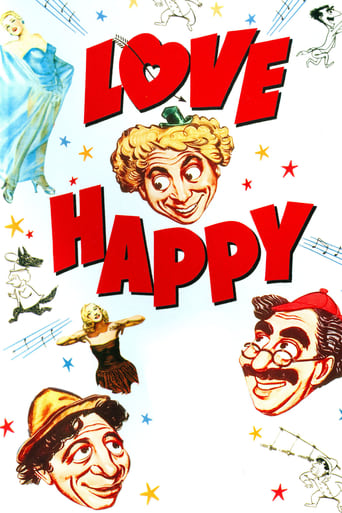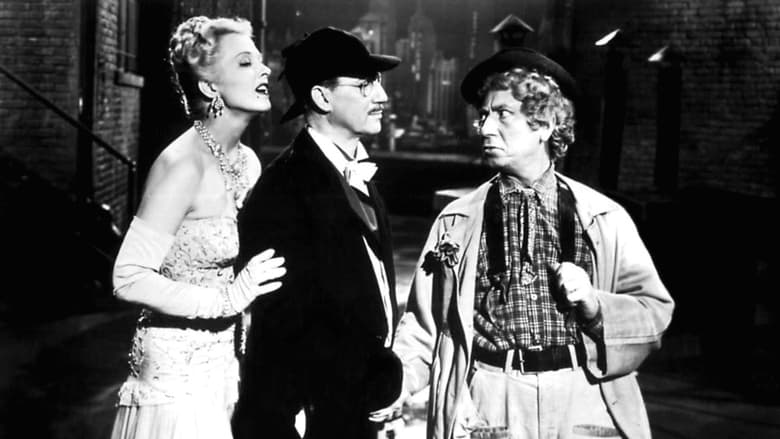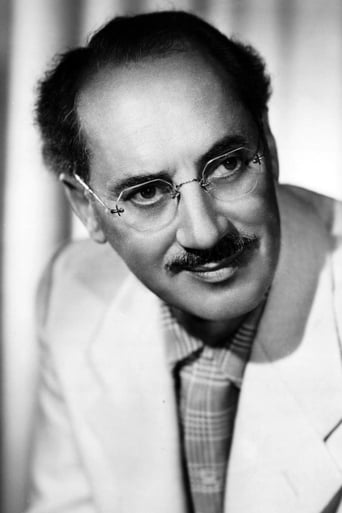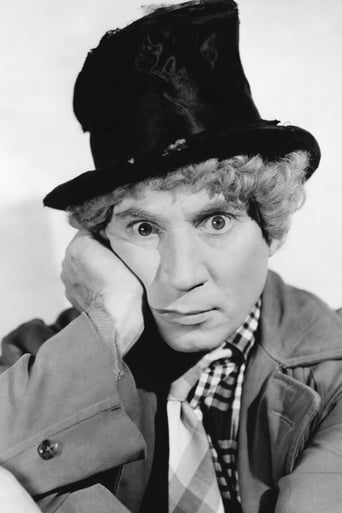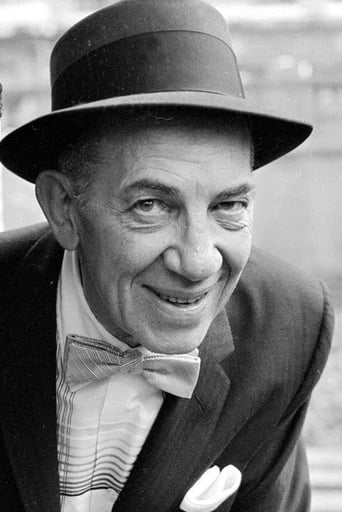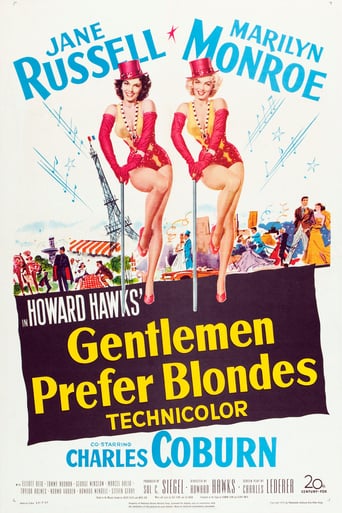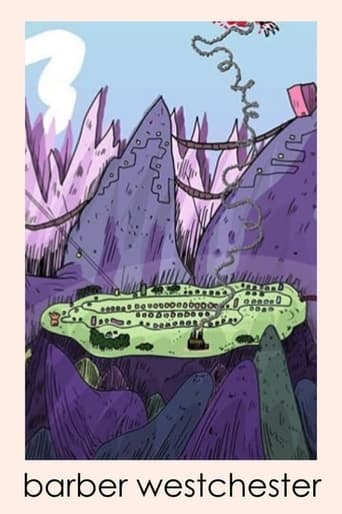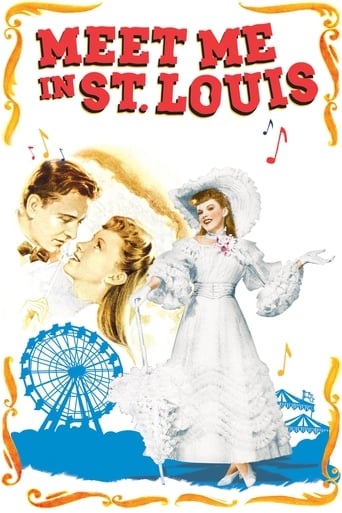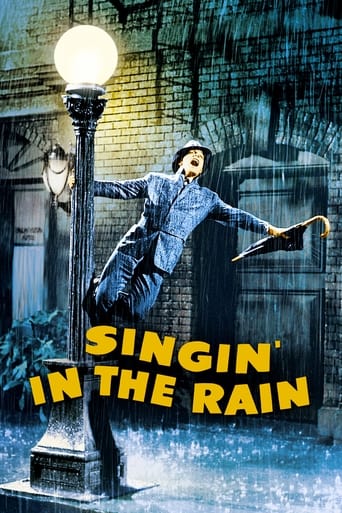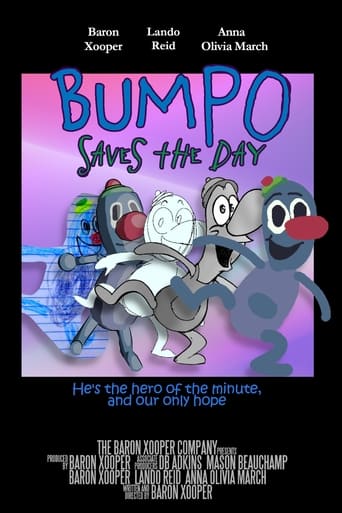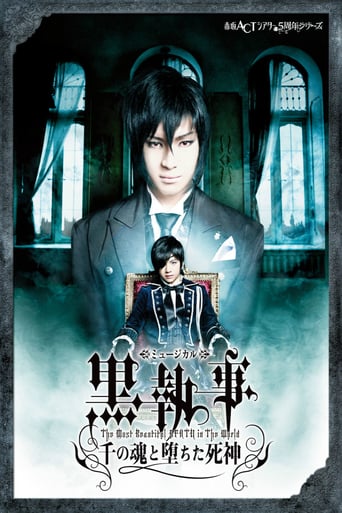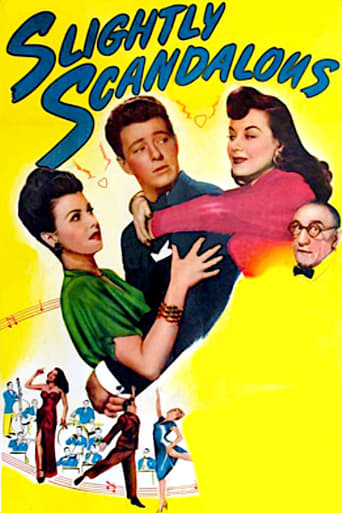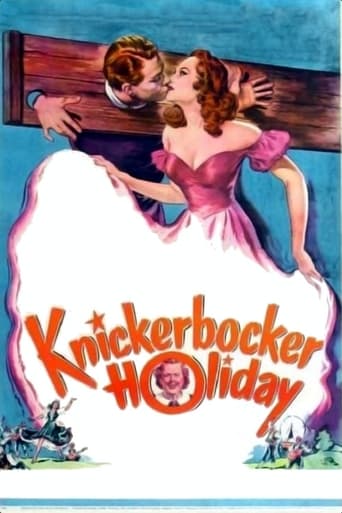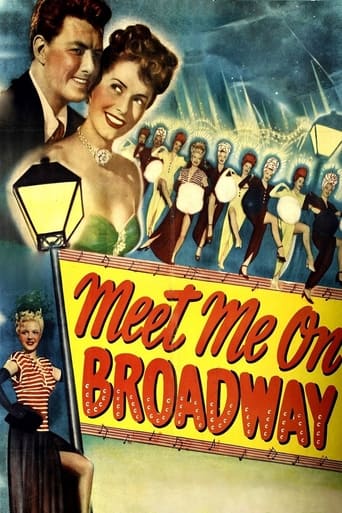Love Happy (1949)
The Marx Brothers help young Broadway hopefuls when they get mixed up with gangsters due to a tin of sardines containing Romanoff diamonds.
Watch Trailer
Free Trial Channels
Cast


Similar titles
Reviews
Excellent, Without a doubt!!
Tells a fascinating and unsettling true story, and does so well, without pretending to have all the answers.
It's the kind of movie you'll want to see a second time with someone who hasn't seen it yet, to remember what it was like to watch it for the first time.
Worth seeing just to witness how winsome it is.
Love Happy is the final movie that features the three Marx brothers (Groucho Chico Harpo) in top billing and as the stars. Once again they do the occasional musical performances. This time Frank Tashlin co-writes the script (bringing, I'd imagine, some pure cartoonish brilliance to it, in fits and starts). And it's OK... ish. Actually Harpo is better than OK, but when isn't he? This isn't even his premier work and he's delightful to watch in scenes that should be rote like when the actress asks Harpo to be his manager and he mimes becoming a "big shot" with his feet up on a can of rubbish in a park, miming as well being on the phone with many agents. It's what he was made for as a performer, moments like this.The main problem for me is a major lack of the brothers interacting with one another - Groucho barely appears in the first half for Pete's sake, and only through limited 4th wall breaks - yet there are a lot of legitimately entertaining musical numbers (really, there isn't a dull one, including a number where a woman sings about being frustrated with motherhood). There's once again another loony but half-baked crime plot, here involving stolen diamonds in a can of... sardines I think, Chico on piano, and a musical that is on thin ice as far as being produced. Objectively this isn't as good a movie as I'm rating it, but I'm being generous because when these guys do click in their scenes they are just that funny. In other words it's better than Room Service (oddly enough this has the storyline that it's closest to), but not by much.It's also uncanny seeing Groucho without his grease-paint mustache as a movie character with the brothers.
Taken as the final Marx Brothers movie, then Love Happy can't help but disappoint. But the enjoyment contained in this pleasant diversion of a film is perhaps directly proportionate to how you approach it. Really the film, based on a story by Harpo, is a solo Harpo Marx vehicle, and the first one in which his character shares the same moniker as his stage name since Monkey Business. I've reviewed three Marx Brothers movies on the IMDb over the last decade or so, and in some of them I've been pretty mean about Harpo's character. As a relative Marx Brothers novice (though, as said, I've still been watching them for around a dozen years now) maybe it took me a while to get used to him, or maybe he really is just more likable in this one? Certainly his affectations around women seem more genuinely innocent and charming than the would-be sex pest of the earlier vehicles. Though this is, of course, the whole point: the Harpo Marx in this film isn't really the uncontrollable force of nature from earlier ventures, but a more passive and selfless man played by an actor now in his sixties. You're no longer watching THE Harpo, but A Harpo. One inconsolable issue I've always had with the character is that the inner beauty he allows us to see during his harp solos isn't reflected in the regular persona. So the sweet and gentle look in Harpo's eyes comes from a different place to the guy causing violent mayhem or female harassment. By the time of Love Happy, both sides of the character finally meet in the middle, as Harpo begins to embrace the kind of naked sentimentality so beloved of Chaplin, particularly towards the end of his career. (And as Harpo ages, he begins to bear more than a passing resemblance to Chaplin, particularly as Charlie played other characters with his own white hair during the 50s).So, if we can take this film on its own terms, and lower expectations accordingly, it becomes more palatable. Then we factor in that it has a minor role for Chico. The brothers had previously come out of a five- year retirement for A Night In Casablanca (6) reputedly to help clear Chico's gambling debts. Chico doesn't get away with this scott free, as in Casablanca and this movie he's forced to take parts in scenes that involve him gambling. Love Happy even has him losing, with a "There goes my coat". And in an age of product placement, then the mark of the financial backers is even sent up, with Harpo amusingly using most of the advertising billboards during the climax as makeshift fairground rides.With all this in mind, it's a likable enough movie that features the final film performance of Harpo Marx, with a guest appearance from his brother. Except, by this stage, the financial backers want the obvious and Groucho is also drafted in. Yet Groucho isn't properly integrated into the narrative, and just does introductory monologues/voice-overs and gets to share hardly any screen time with his brothers at all, not even being seen on screen with Chico even though they're supposed to be in the same scene. Even worse, Groucho couldn't make his disinterest any clearer if he'd tried. While he appeared reinvigorated for Casablanca - for my money, better than any film they took part in since A Day At The Races – here he's just there to help out his brothers, a deeply bored man sans greasepaint, more interested in his TV quiz show than this "not really a Marx Brothers" movie.Certainly even less of a Marx Brothers movie is an endeavour they all did eight years later – Irwin Allen's The Story of Mankind (5), featuring all three brothers playing minor roles in vignettes where they do not meet. A film that looks part epic (thanks to reused stock footage), part cheap episode of Star Trek, it has some amusing moments for a once-again-trying Groucho, a "blink and you'll miss it" secondary part for Chico and two minutes of Harpo as Isaac Newton. The only time they were shot in colour – in this case the lovably dated and garish Technicolor – you finally get to see them in their splendour, although Groucho once again appears without his make-up, and all three are pushing seventy. It's by no means a great film, and by no means a Marx Brothers movie, though it's probably better than its reputation, even if only by default.So for the final three Marx Brothers pictures after their return from retirement, we're left with the unsettling prospect that only one of them can genuinely be regarded as a Marx Brothers movie. Love Happy, then. It's a terrible Marx Brothers movie. But as a movie in its own right, it's really quite charming.
"Love Happy", the last official Marx Brothers film (unless you want to count "The Story Of Mankind"), is also usually listed as their worst, but I'm not sure I can agree with this evaluation. There are numerous problems with it, to be sure: Groucho only appears about 4 times in total; Chico overdoes his Italian accent more than ever before, but his only truly funny scene is the pantomime game with Harpo; the piano and harp interludes are dull; the chase climax is weak. And yet, there are lots of things to like in "Love Happy" as well: Harpo is joyful, expressive, tireless and sometimes even touching (the scene where they "search" him for the diamonds is hilarious); during his limited appearances, Groucho throws out all the funniest lines in the film (my favorite comes at the very start: "The FBI was baffled, the Scotland Yard was baffled. They sent for me, and the case was solved immediately: I confessed!"); Ilona Massey milks the icy-hot bad girl role for all it's worth; the supporting cast is filled with lovely, leggy ladies; the musical numbers, although not exactly necessary, are quite entertaining in their own right; and let's face it, if you're a fan, every film the Marx Bros. made is worthy of a spot in your DVD collection. Beware of the hype for the Marilyn appearance, though, it is literally a few seconds long. **1/2 out of 4.
LOVE HAPPY (United Artists, 1949), a Mary Pickford presentation, directed by David Miller, became the 13th and final collaboration of Marx Brothers comedy team, this time with a few alterations, especially in featuring the silent one, Harpo, as the leading character, with Chico and Groucho taking on lesser responsibilities. While this could have been simply a Harpo Marx comedy, following Groucho's solo effort in COPACABANA (1947), someone probably didn't think it possible to have Harpo carrying on 85 minutes of screen time without his brothers, in spite the fact that he's credited as author of the story. The final result is a musical-comedy labeled the least liked of all the Marx Brothers movies. Overlooking it's negative reputation, it be best to consider the possibilities of what the story has to offer, with some fine comedy material thrown in, that actually keeps this one from being a total disaster.The story opens in typical 1940s fashion, with Groucho as Detective Sam Grunion relating to the movie audience as to how he had spent eleven years investigating a million dollar theft of the Ramanoff diamonds, followed by his introduction of numerous characters, including Mike Johnson (Paul Valentine), both manager and leading man; Maggie Phillips (Vera-Ellen), his dancing partner; Bunny Dolan (Marion Hutton), a singer and Maggie's best friend; and finally Harpo (Harpo), a kindly hobo who happens to be love happy for Maggie. He helps the troupe by supplying them with stolen food. Also in the company is Faustino the Great (Chico Marx), a mind reader. Madame Egilichi (Ilona Massey), the leader of a gang responsible for the stolen jewels, is told by Throckmorton (Melville Cooper), who uses a delicatessen as a front, that the diamonds have been placed in a sardine can marked with a cross. It so happens that Harpo had taken this can, along with other canned goodies, for his hungry actor friends. Because the diamonds are somewhere in the theater, Egilichi finances the show, leading to a merry slapstick chase on the rooftop as Egilichi, and her henchmen, the Zoto Brothers (Bruce Gordon and Raymond Burr) go after Harpo and Faustino, who have both the real as well as the phony diamonds in their possessions, while Sam Grunion makes his reappearance before concluding his narrative to the great diamond caper. And watch for the surprise ending.LOVE HAPPY is actually not an attempt to revive the Marx Brothers on screen, for that their best work was already behind them, yet it shows how far they have come, twenty years from their screen debut (1929). Age has caught up with the brothers this time around. Considering the changing times, especially after World War II, their brand of comedy might be, by 1949 standards, old-fashioned, far-fetched or overly familiar. For the first time on screen, Groucho looks more natural, sporting a real mustache, instead of his traditional black tape over his lip. Chico continues to be in character, Italian accented, pointy hat, and once again translating Harpo's mimed message distress call following Maggie's abduction. Chico does provide moments of nostalgia by refusing a can of sardines in favor of his DAY AT THE RACES (1937) product of "Tutsi-Fruitsi ice cream." Aside from playing the piano, Chico offers few comedic moments, such as losing a game of cards to a dog(!). The Harpo here breaks away from his traditional characterization, being toned down a bit and being a range between the old Harpo to that of the sentimental likes of Charlie Chaplin. Key scenes find him falling victim to Egliouchi's thugs as they attempt to empty out his pockets for the diamonds, taking out everything imaginable, including a live dog! When all else fails, poor Harpo is put through the torture test such as smoking rope for six straight hours; spinning in a washing machine filled with water; tied to a revolving rack; being tempted by food at a distance while starving and tied to a chair; and finally the William Tell test. Even Egilichi's attempt to vamp him nearly works, but Harpo uttering a word is totally impossible.On the musical program, there's "Love Happy" (sung during opening credits); "Mama Wants to Know," "Willow Weep for Me," "The Sadie Thompson Number," "Gypsy Love Song" (piano solo by Chico) by Franz Lehar; "Happy Birthday to You," "Swanee River" by Stephen Foster (Harpo on the harp) and "Love Happy" (reprise, closing credits).Paul Valentine, Raymond Burr and Marilyn Monroe receive special introductory billing during the opening credits. Although still new to the business, this is not their movie debuts, yet the starring status of Burr and Monroe, would only be a few years into their futures. Monroe's very brief scene with Groucho as a lady in distress constantly being followed by men is truly a highlight.So ends the movie careers of Groucho, Harpo and Chico as a team. With this being their last, it was one of the first to be distributed onto video cassette during the early 1980s, notably with the video storage case featuring Marilyn Monroe and Groucho Marx on the cover, and currently available on DVD (with restored footage). For its cable TV broadcast history, it alternated between American Movie Classics (1995-2000) and Turner Classic Movies. In spite of an odd mixture of gags, ranging from good, bad to disturbing, LOVE HAPPY has enough ingredients to satisfy any Marx Brothers fans. (**1/2)

